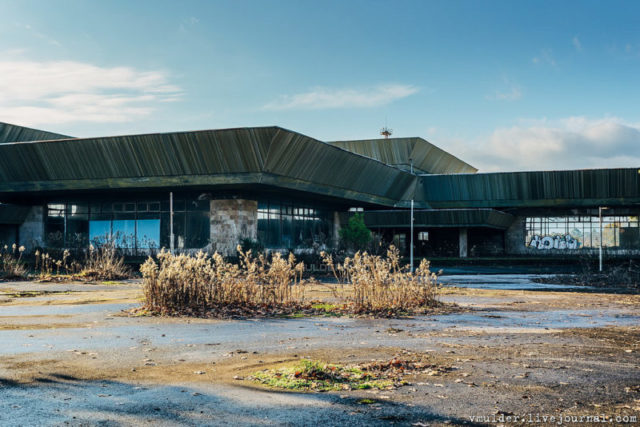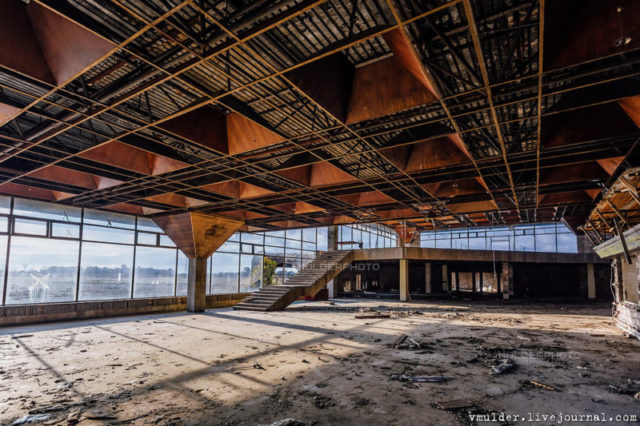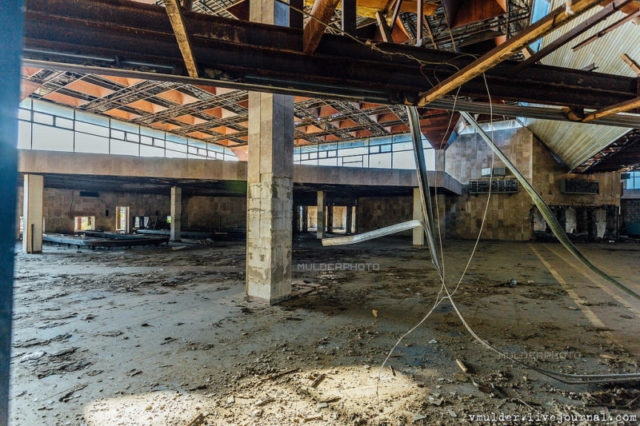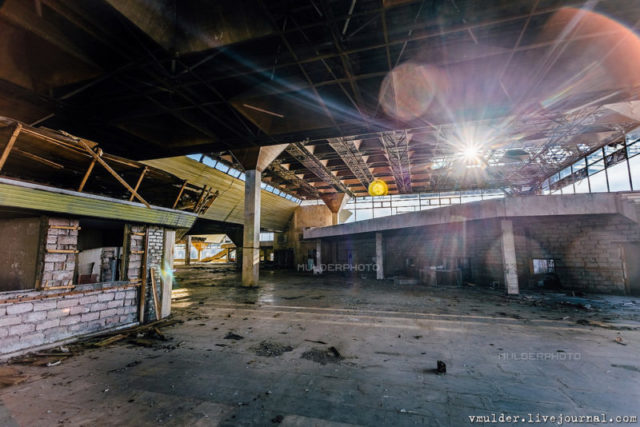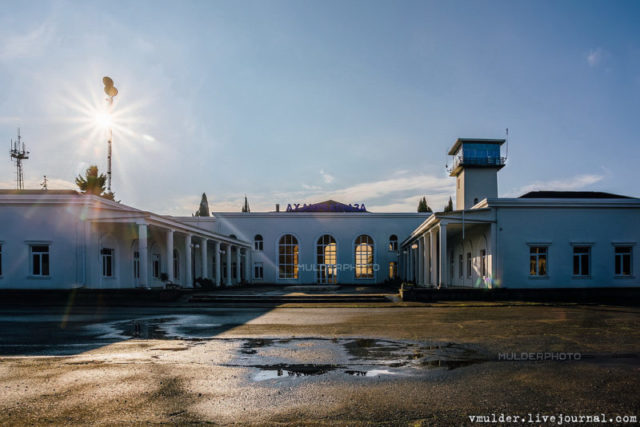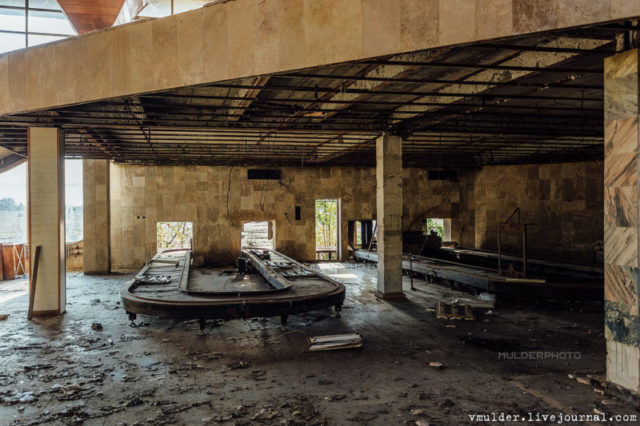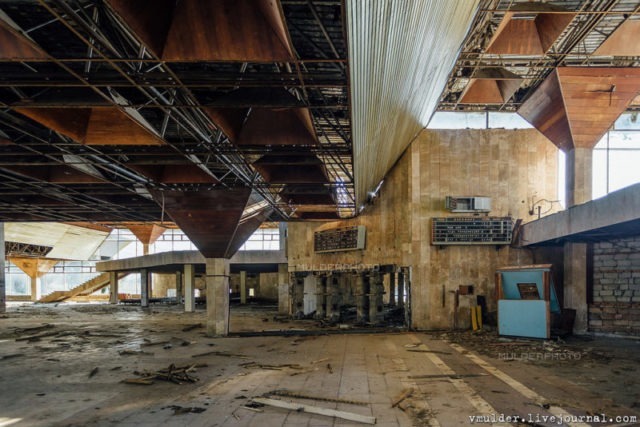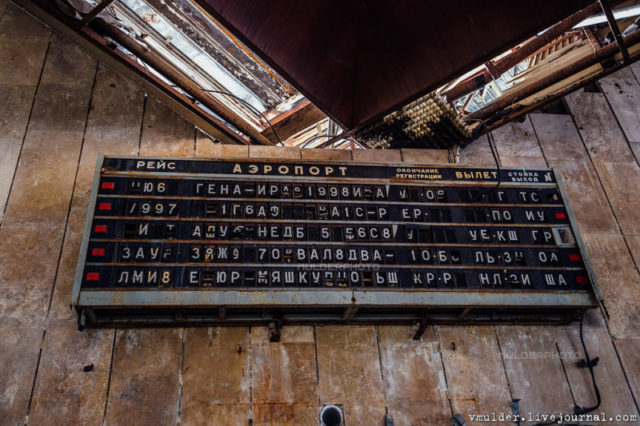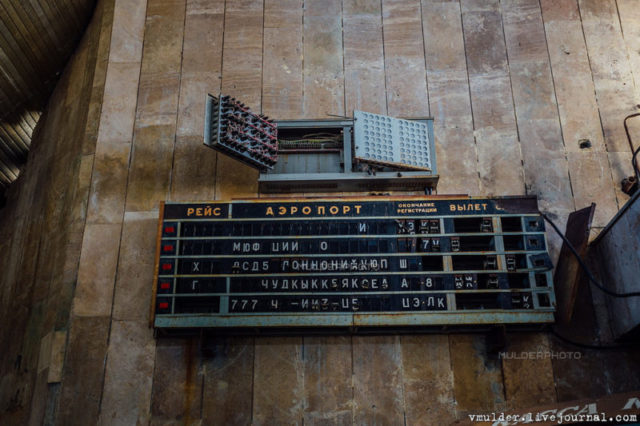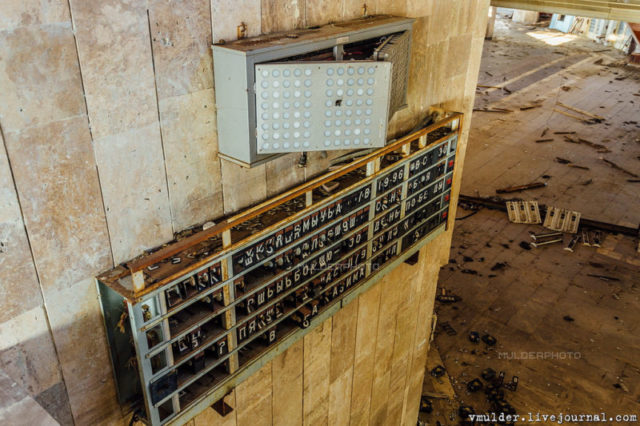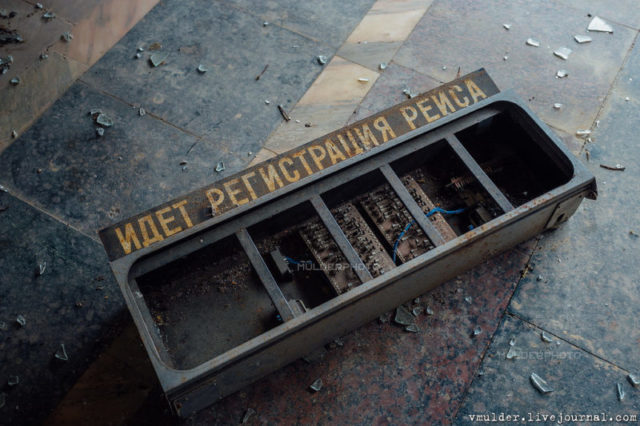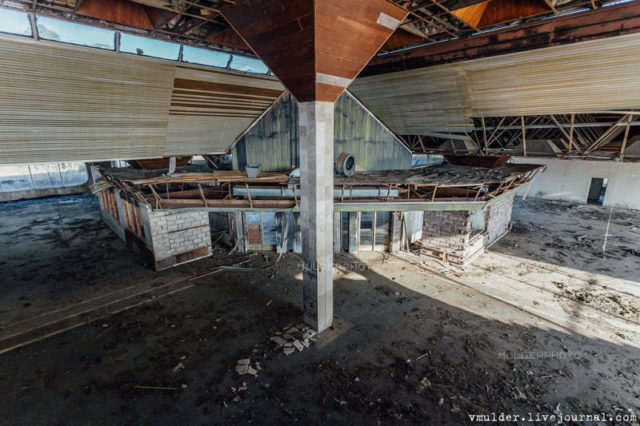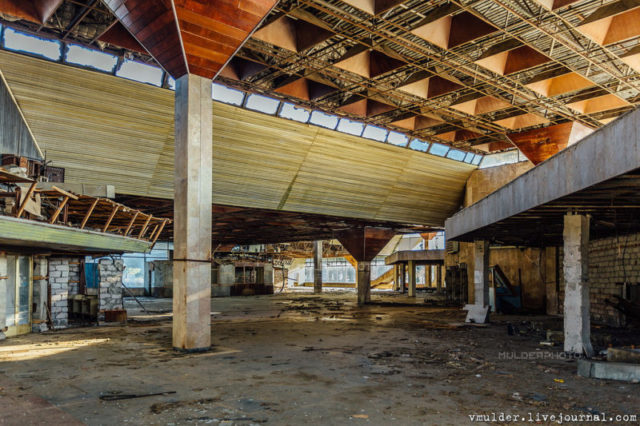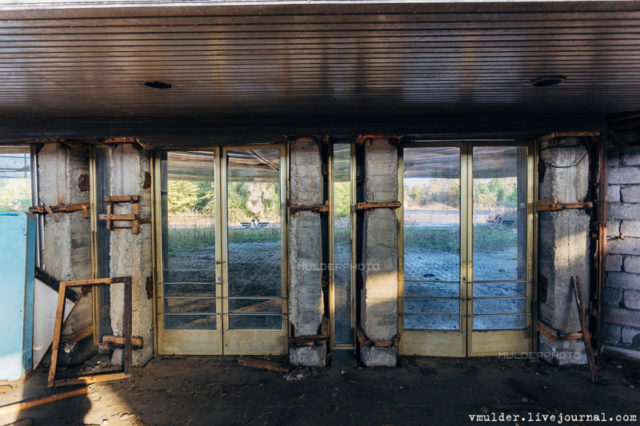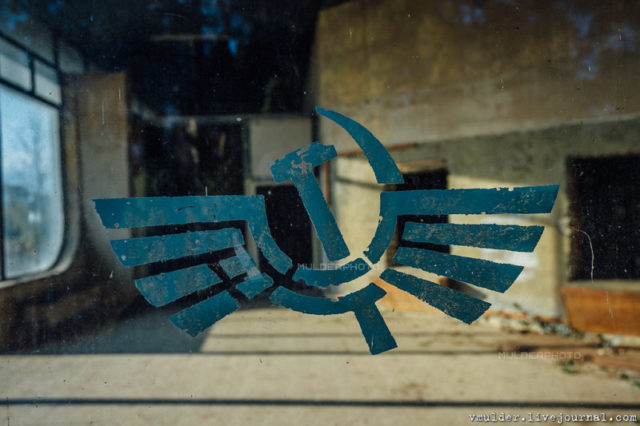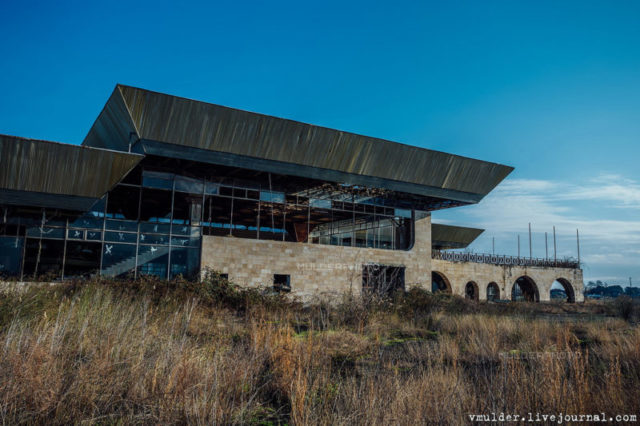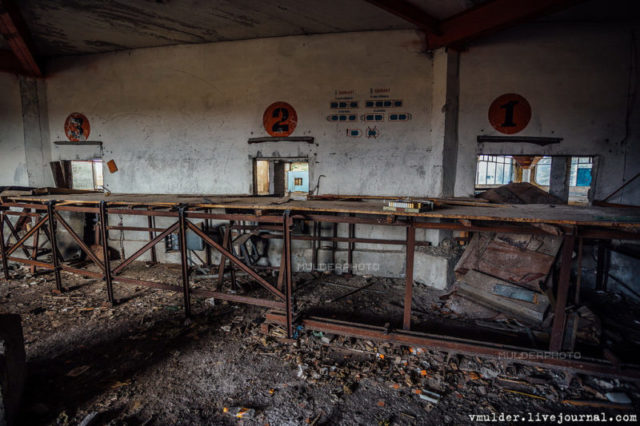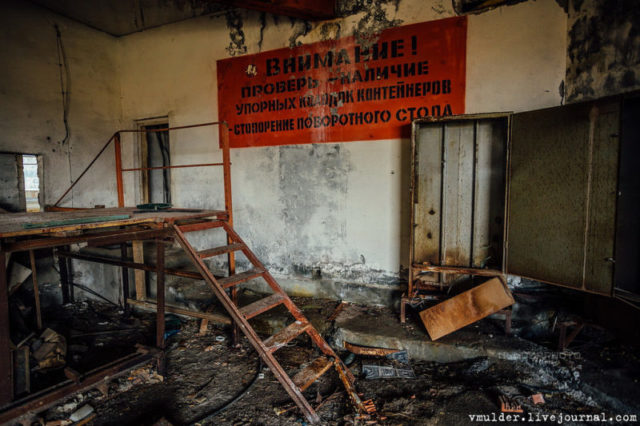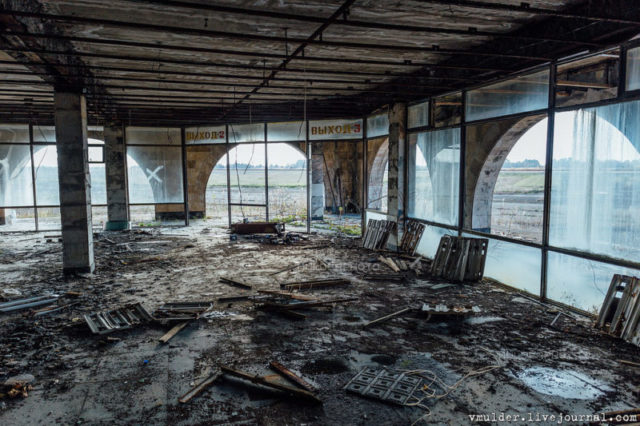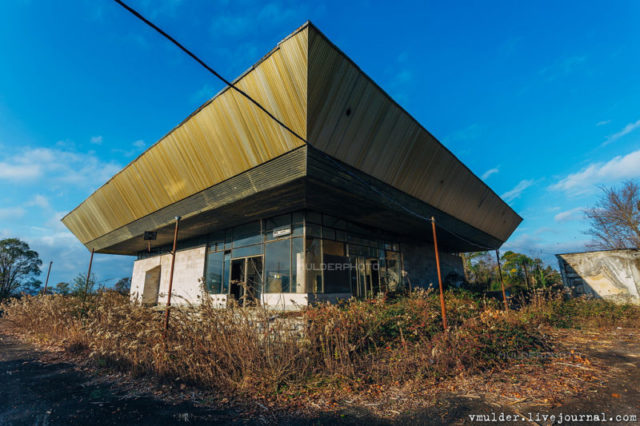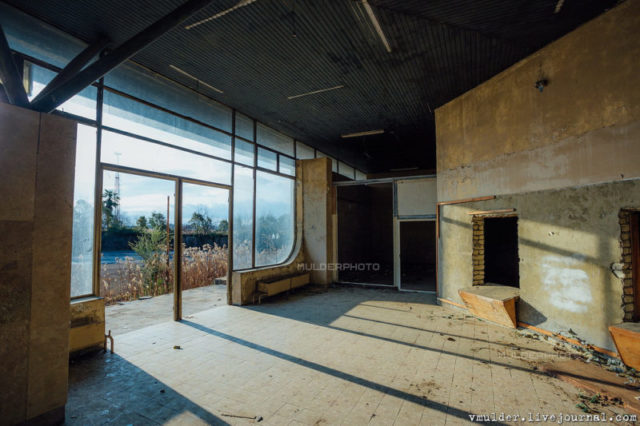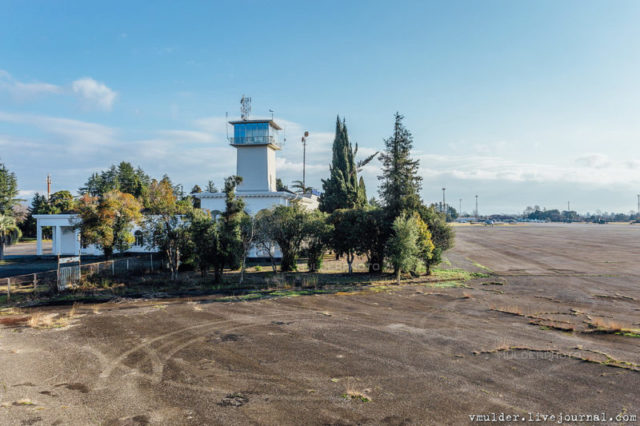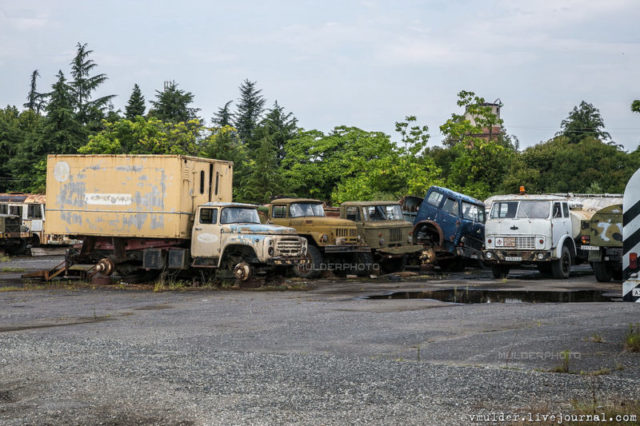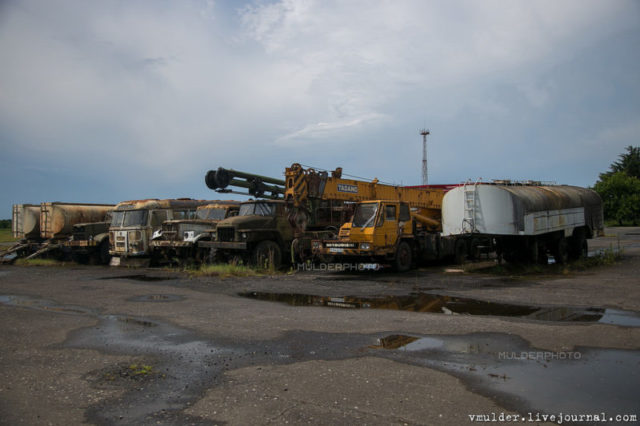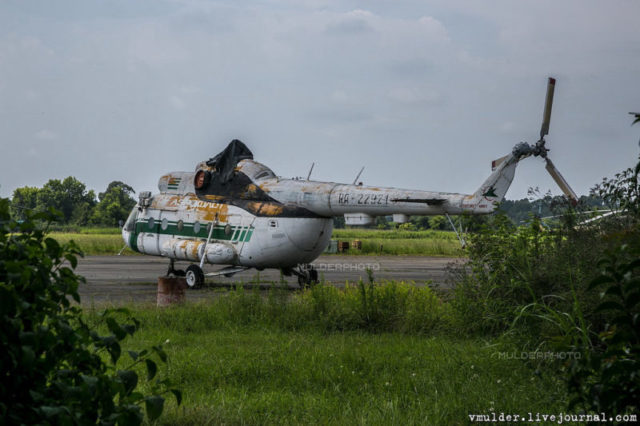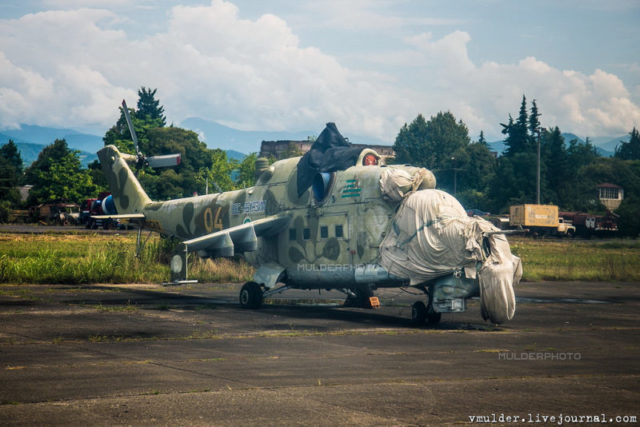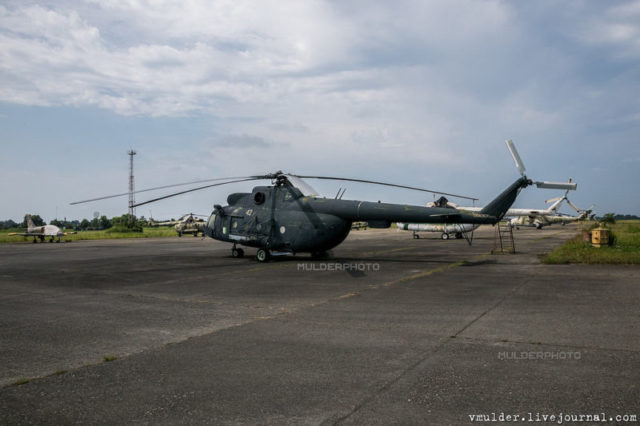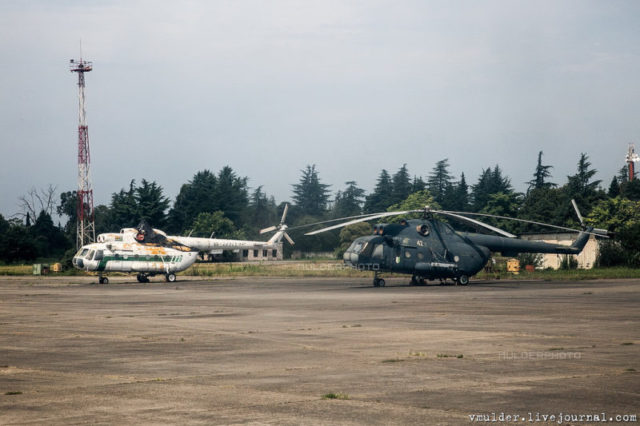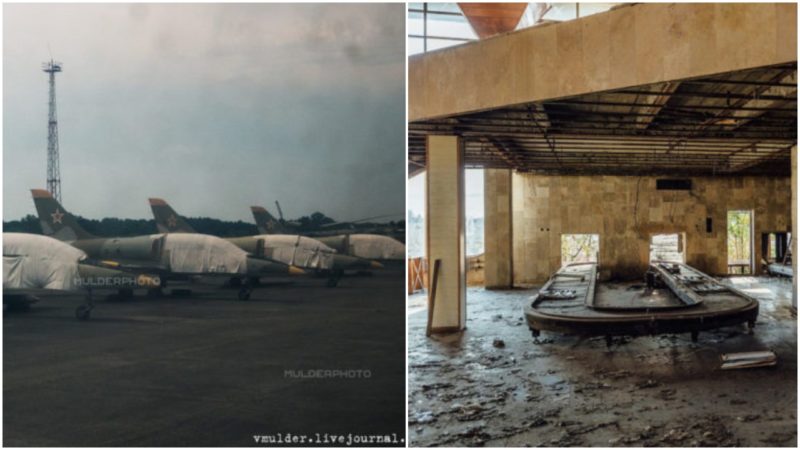The Sukhumi Airport is located in the village of Babushara near Sukhumi, the capital city of the self-proclaimed independent Abkhazia. The separatist polity is formally recognized as a state only by 5 countries, while the majority of the world, the UN included, see it as part of Georgia.
The story of the Sukhumi Airport begins in the 1960s, when Abkhazia still was an autonomous republic within the Georgian SSR. Once the airport was built, it became an important logistical point, with regular flights to many Soviet cities and helicopters to different settlements within Abkhazia.
Passenger turnover amounted to 5,000 passengers per day in the summer and to 1,000 per day in the winter. This drastic difference can be easily explained because Abkhazia was a country heavily reliant on tourism, specifically sea-side holidays.
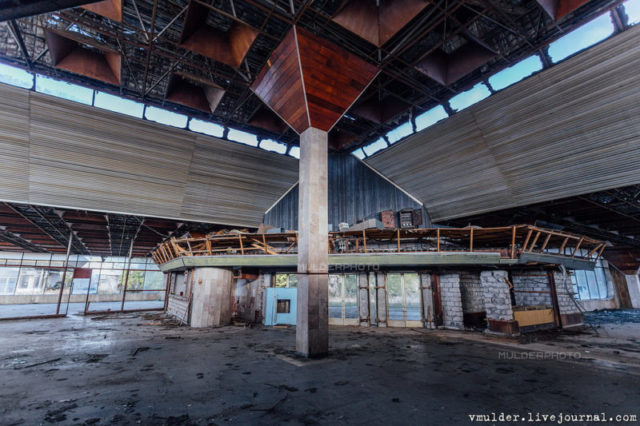
At the end of the 1970s the concrete runways were thickened to enable the airport to receive heavy Il-76 aircraft. In the 1980s, a new airport building was built, while the runway was extended to enable Il-86 aircraft to land there.
Sukhumi Airport was capable of receiving any airbus-class passenger aircraft with a mass of up to 125 tons. There was even a runway 3.64 km long (one of the longest in the CIS) with reinforced concrete surface and landing possible from 2 directions.
Then the war came. The issue of Abkhazia’s political status and sovereignty was the key factor behind the Georgian-Abkhazian conflict. Catalyzed by the fall of the Soviet Union and Georgina abrogation of the Soviet Constitution (which was perceived in Abkhazia as abolition of Abkhazia’s autonomy), the conflict escalated into a war on August 14, 1992, when Georgian troops entered Abkhazia. The war lasted 13 months and claimed the lives of 8,000 people. Around 250,000 Georgian refugees (which is around half of the total population) had to flee from Abkhazia.
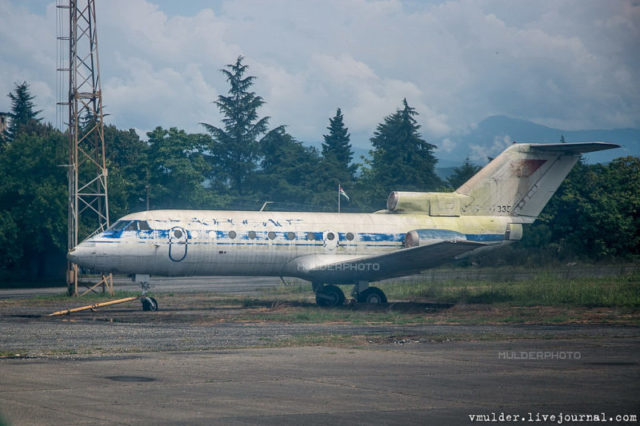
As a result of the war, the airport was initially deserted. There were plans to revive the airport and repair works were even carried out between 1998 and 2000. It began to be used again; for a while a restaurant was open inside. In 1999 a batch of glass was delivered to glaze the walls of the airport, but in July 2000 a tornado destroyed elements of the new glazing.
But meanwhile hostilities between Georgia and Abkhazia resumed. In the spring of 1998 a conflict between Abkhazians and Georgians in the Gali District led to hundreds of causalities on both sides and an additional 20,000 Georgian refugees. In September 2001, a group of Chechen and Georgian paramilitaries appeared in Kodori Gorge and advanced to Sukhumi, but were repelled by Abkhazian and Russian troops based in nearby Gudauta.
In 2006 Kodori crisis erupted as Georgian troops and police forces were matched into the Kodori Gorge to conduct what they claimed an operation against local armed formations. This resulted in Georgian militia being stationed in Kodori Gorge, but they were later driven out during in 2008 during the War in South Ossetia and the Russo-Georgian War.
On August 11, 2008, during the war in South Ossetia, Russian military transport planes landed at the airport for the first time in 15 years. Over 30 Il-76 aircraft delivered paratroopers and military equipment. And on September 14, 2008, the airport received the first airliner in 15 years. The plane had Russian Foreign Minister Sergey Lavrov on board.
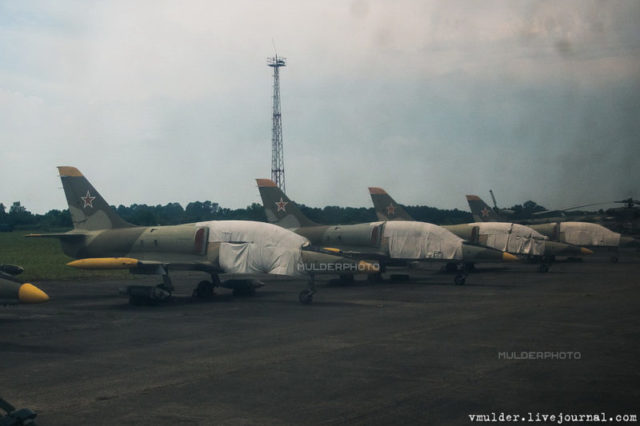
This series of conflicts had a profound impact on Abkhazia. The country was drained of its finances and, because the territory is seen by most countries as occupied Georgian territory, affected by sanctions and restrictions.
The airport building was renovated in 2011, and it was to become operational once again in 2013, but it never did. This is because the International Civil Aviation Organization (ICAO) does not recognize the airport. It recognizes the territorial integrity of Georgia. And Georgia closed Abkhazian airspace.
Thus the airport is closed to international air traffic. Air companies which are members of IATA do not conduct flights to Abkhazia. Even though in 2008 Russia officially recognized Abkhazia as a sovereign state, Russian airlines do not fly to Sukhumi in order to avoid IATA sanctions.
So the airport, once ready to welcome passengers and coordinate busy flights, stands empty and slowly deteriorates. It is still occasionally used by the Abkhazian air force (more precisely, what is left of it) and private excursion aircraft. There are still a few Tu-134 and Tu-154 aircraft at the airport.
A big thank you to Vladimir Mulder for information and photos! Check out his work here: vmulder
